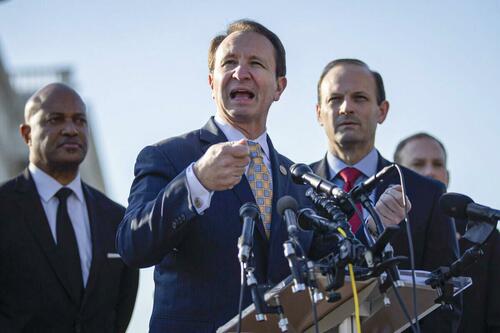What You Need to Know
- Surgery sometimes leads to complications.
- Caregivers may be quicker than doctors or nurses to notice those complications.
- One simple phrase can help you and your clients prevent catastrophes.
I started writing this article while sitting by my husband’s bedside in the hospital.
The last few weeks have been a medical nightmare.
My purpose is to share what I have learned the hard way: strategies your clients — and, possibly, you — may need to successfully maneuver through a medical crisis with a loved one.
Here’s what happened.
Week 1: My husband Bernie had emergency gall bladder surgery. The gall bladder was very badly infected, and he had sepsis.
With the hospitalist system now in place in many hospitals, you’re assigned a surgeon in the emergency room. I will call my husband’s surgeon Dr. S.
Week 3: We had a 9 a.m. follow-up appointment with Dr. S. Bernie was still having pain and very weak.
Lesson 1: Be assertive.
If you think there is a problem that is not being addressed by the doctor, don’t take no for an answer. Speak up and listen to your gut feelings.
Dr. S. found that the incision was badly infected. He drained it and said that Bernie should return home, and that a home health care nurse would visit daily to check it.
I told him, “There is something really wrong here. Please do additional tests.”
Dr. S. disagreed. I insisted.
And, finally, he replied — in a very irritated tone — that I should take — Bernie to the emergency room if I was worried.
That’s what I did. After numerous tests, we were informed that the sepsis was worse, and that Dr. S. would do emergency surgery the next morning.
If I had taken my husband home – as originally advised — he probably would have died.
Lesson 2: Take copious notes.
And, if possible, record the conversation.
The morning after the tests were conducted, a surgery that was supposed to take one hour lasted three.
When Dr. S. came to me in the waiting room, to discuss the surgery results, I was anticipating good news. I was shocked to hear what he had to say: that he had to do another emergency surgery in two days.
I did take some notes but was so horrified that I missed a lot of what Dr. S. was telling me.
After Dr. S. left, the woman who had been sitting nearby came over and hugged me. She had overheard the conversation.
Then I asked her to help me recall what Dr. S had said so I could take more notes.
Keep a notebook. Write down the name of every person providing medical updates and what they said and when.
If they know you have their name, they immediately feel accountable and will be more likely to provide the attention you want and need to stay on top of the medical crisis.
Lesson 3: Doctors and other medical personnel seem to sugarcoat the patient’s condition.
Probe to get the hard facts. Ask why various medications and IVs are being used.
The day after Bernie underwent the first round of emergency surgery, I called the intensive care unit for an update and was told that Bernie was doing fantastically.
Meanwhile, he was on a breathing tube and heavily sedated.
I wanted to know the truth. I finally drove to my primary care doctor’s office to ask him in person for more details.
I then asked: “Could my husband die from this, and should I have my sons fly in?” The primary care doctor hesitated and then said yes.
Also, I learned that there were a number of small blood clots in my husband’s left leg that could result in a stroke.
Lesson 4: Be aware of the limitations of the hospitalist system.
Many hospitals are now using the hospitalist system. At a hospital using the hospitalist system, every doctor seeing a patient is a specialist in a certain area.
From a management perspective, the system is touted as providing continuity of care for an inpatient.
However, from a spouse’s vantage point, the hospitalist system frustrating.
I never could get in touch with any doctor who could provide a comprehensive picture of all of Bernie’s problems.
My primary care doctor is not allowed to see inpatients, because he is with an outside group practice. But he was able to access the hospital records and keep me updated.
Lesson 5: Take control when needed.
When Bernie was improving and moved to a regular hospital room, I quickly realized that the doctors were talking only to him.
Bernie was also sugarcoating the facts, so I wouldn’t worry. I needed to know all the facts.
I have continually reminded my husband of that — and have now been calling the case manager and other key people to make sure I’m in the loop.
Lesson 6: Memorize these two magic words: unsafe discharge.
Even if a hospital wants to discharge a patient — primarily because of the revised Medicare payment system – you can protest and insist that the patient stay longer.
The words to use are “unsafe discharge.” And then the hospital needs to keep the person for the longer period of time while an appeal is under way.
It was important that my husband be admitted to the hospital’s rehab area, rather than going to an outside facility.
First, because the care in the hospital’s rehab area is excellent; and, second, because Dr. S. wanted to continue to monitor my husband’s progress.
A friend advised me to protest a discharge until my husband was strong enough to get three hours of physical therapy per day, which is the admission requirement.
I called the case manager to introduce myself and told her upfront that I would appeal any discharge plans until my husband was approved to go to their rehab facility.
And it worked: He has now been moved there.
And more…
I’ve also learned to use the CaringBridge website to provide updates, and to take time for myself.
It’s wonderful to have family and friends concerned about my husband’s progress, but it’s overwhelming to be fielding numerous calls, emails and texts in addition to working and going to the hospital every day.
This free website enables you to provide a journal entry and people can then comment.
I read it every morning. All this support and love are so appreciated.
And, of course: If you want to be a good caregiver, you will need it to survive this.
Many days when I leave the hospital I am exhausted and stressed.
My solution right now: gourmet chocolate ice cream.
It does help.
Margie Barrie, an agent with ACSIA Partners, has been writing the LTCI Insider column since 2000. She is the author of two books and a frequent conference speaker.
https://www.thinkadvisor.com/2022/11/19/6-lessons-for-clients-with-loved-ones-in-the-hospital/


